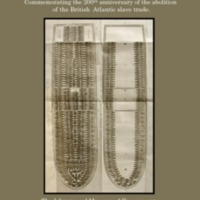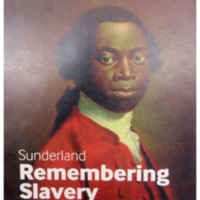
Squaring the Triangle: Freemasonry and Anti-Slavery
The exhibition at the Library and Museum of Freemasonry to mark the bicentenary arose from a project to catalogue their historical collections relating to Masonic history in the West Indies and America between 1760 and 1900. This period covers the establishment of African Lodge, the first Masonic lodge for African-Americans. Its first Master was Prince Hall, a freed slave and respected Boston resident who had fought for the British. From 1847 his name has been synonymous with Prince Hall Masonry, the first major Black Masonic organisation in the world. The library holds eleven letters written by or for Prince Hall. The exhibition and cataloguing of this correspondence enabled the library to start compiling details of early Black and Asian Freemasons in its collections. The exhibition also looked at members in the 18th and 19th century who were both slave owners and abolitionists, and the establishment of lodges in the Caribbean.

Sunderland Remembering Slavery
Remembering Slavery 2007 involved museums, galleries and other cultural organisations across the North East of England in a programme of exhibitions, events, performances, lectures and activities to explore the themes of slavery and abolition, and identify connections with the region.
In Sunderland, the Museum and Winter Gardens hosted a varied programme of activities under the Remembering Slavery 2007 umbrella, including African drumming sessions, African inspired textile crafts, poetry workshops and storytelling. There were also guided walks around the sites associated with James Field Stanfield, the leading Sunderland campaigner against the slave trade. Elsewhere in the city, The Power of Words: an Image of Africa Past and Present was a creative writing project in collaboration with the Sunderland African Association. Participants worked with poet and writer Sheree Mack to produce poems exploring slavery and its relevance in contemporary times.